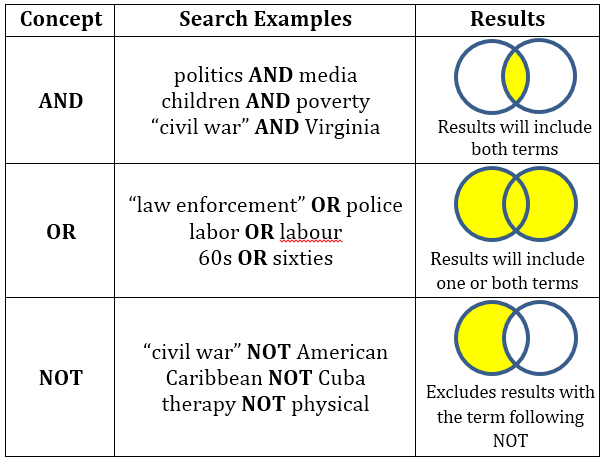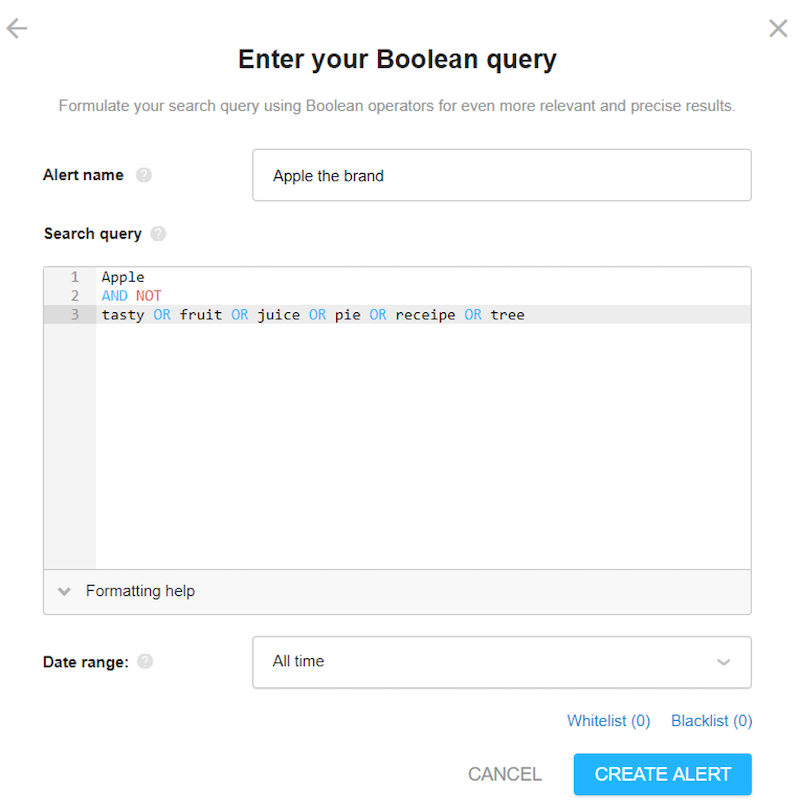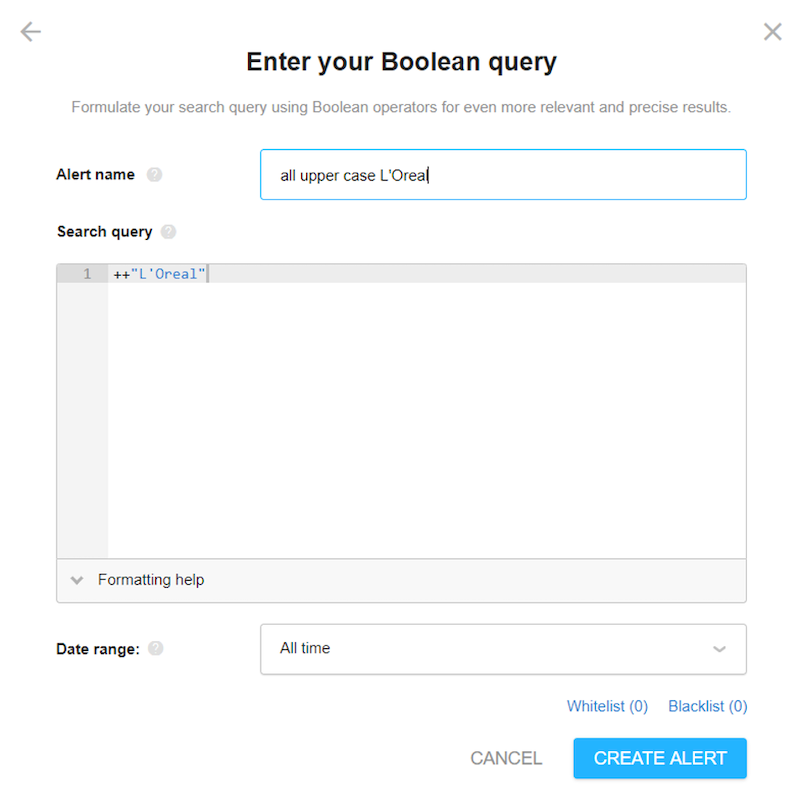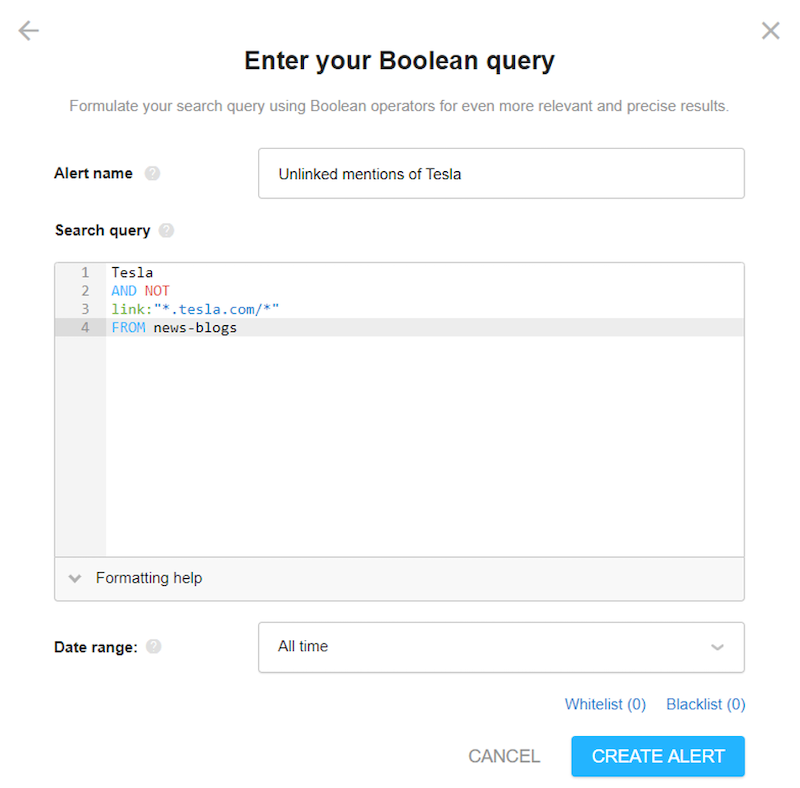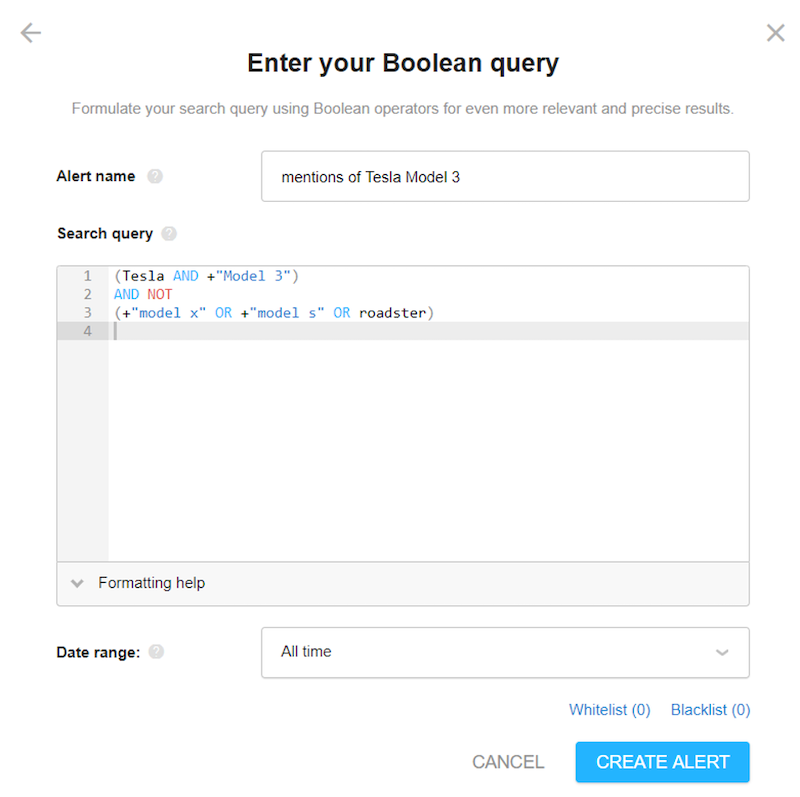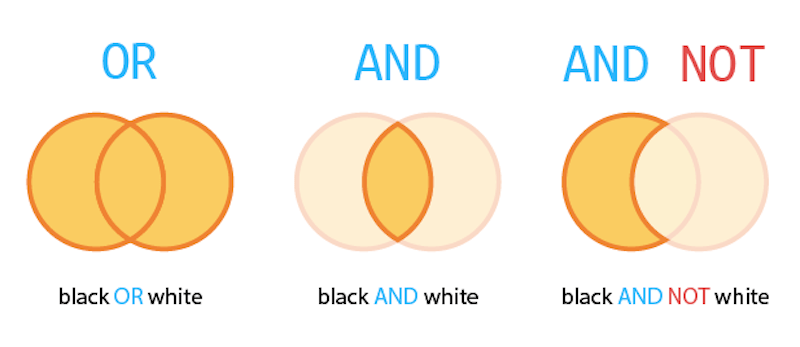
In social listening, Boolean search is something of a magic move. It takes you above the rest. It finds online brand mentions that built-in wizards can’t find, gets rid of all the irrelevant noise, searches for the most obscure queries, and helps with tasks that seem like they have nothing to do with social listening (e.g., SEO).
However, for Boolean search to do all that, you need techniques. In this article, we’ll go through:
- What exactly defines Boolean search and social listening
- 5 Boolean search techniques to improve your social listening
- How to put the two together to find hot leads online
What is social listening?
Social listening goes far beyond the realm of social media platforms. If you have any online presence in your market at all, customers are more than likely talking about you on social media platforms, websites, blogs, review sites, and anywhere else they get together to share opinions and ideas.
How strong is your online presence? Find out in 90 seconds with the free LOCALiQ Website Grader!
If that comes as news to you, you’re not alone. In fact, you’d probably like to know who’s talking about you and what they’re saying, right? Enter social listening.
Simply put, you are “listening” to what the internet is saying about your business so you can gain valuable insight, obtain helpful feedback, and stamp out potential wildfires. While that may sound a little overwhelming, with the help of specialized tools, you can actually mainstream the process of collecting and responding to comments and feedback. One such tool is boolean search.
What is Boolean search?
Boolean search is named after George Boole, an English mathematician from the 19th century who developed an algebraic method described in “The Mathematical Analysis of Logic”. Boolean algebra presented there is applied in programming languages and used in search engines.
Boolean algebra consists of Boolean logic operators such as AND, OR, AND NOT, etc. By combining Boolean operators you can create very specific search queries.
5 effective social listening techniques using Boolean search
Now that you understand Boolean search operators, here are five Boolean search techniques that will take the social listening aspect of your digital marketing strategy to a new level.
1. Find mentions of brands with common words as names.
Social listening can be complicated for brands named after common words, e.g., Apple, Orange, Forever 21, etc. If using simple social listening and most results that you get are irrelevant, it’s time to turn to Boolean search and create a more specific query.
For this, you’ll need the AND NOT operator. AND NOT excludes documents that contain a particular word(s). You’ll be telling the program to include all documents that have the X word in them AND that don’t have the Y word.
For example:
Apple AND NOT (“tasty” OR “fruit” OR “juice” OR “pie” OR “recipe” OR “tree”).
In a social listening tool for creating alerts, the above search query will look like this:
With this search query, you can be sure that the results you get have nothing to do with apple the fruit ― only Apple the brand. You might, however, have to add some other words to the query once you run the first search and realize you didn’t think of some other words that signal that the document is about apple the fruit.
2. Find mentions of brands with complicated names
Some brand names include punctuation and are case sensitive, which is not default for social listening tools. Examples include “L’Oreal”, “more & more”, “H&M”, etc. For such names, you need Boolean search to make sure all brand mentions are found. To create punctuation and/or case-sensitive Boolean query, you’ll need operators: +“ ” and ++“ ”.
+ “ ” ensures exact match search takes into account special characters and punctuation of your keyword (this is normally ignored) but ignores lower and upper cases.
++ “ ” takes into account special characters, punctuation, and lower and upper cases of your keyword.
So, if you’re searching for mentions of “L’Oreal” you can use + “L’Oreal” to make sure you also get results of “l’oreal”, “L’oreal”, “l’Oreal”. If you choose to use ++ “L’Oreal”, you’ll only get mentions of that exact keyword.
In a social listening tool, it looks like this:
3. Find linkless brand mentions for link building.
In case you’re new to SEO, backlink building is the process of acquiring hyperlinks from other websites to your own. Acquiring links helps your website to rank higher and get noticed by more people.
Social listening can help with that by finding unlinked mentions of your brand in news sites, blogs, and other articles. Contacting journalists and bloggers and asking them to add links to your website can do wonders for your rankings.
This task also requires Boolean search. Your query has to specify that the search covers news sites and blogs, but ignores social media. It should also specify that you’re interested in finding mentions of your brand, but only mentions that don’t already include links.
For that, you’ll need Boolean operators AND NOT, link: , and FROM. You can also specify the language (lang:) and the location (country:).
In a social listening tool, the query will look like this:
After you find all articles that contain unlinked mentions, sort them by the ones that get more traffic, and start reaching out to the authors.
There are also other ways social listening can help your SEO, but this is definitely the most effective one.
4. Find mentions of a specific product of your brand.
Sometimes, you don’t need mentions of your brand’s entire product lineup, and especially not the mentions of every similar product by other brands. Sometimes, you need to see how a specific product is doing: how well it’s being promoted, how much people are talking about it, whether it’s getting more popular, what complaints and comments the customers have mentioned.
In this case, Boolean search will also help. The query will specify your brand and your product, and additionally request the program to ignore other popular products. For that, you’ll need Boolean operators AND, AND NOT, OR.
In a social listening tool, the query will look like this:
Using Boolean search techniques to find hot leads online
Lead generation is one of the most demanding marketing tasks. There are never “enough” leads and there are never enough methods to find them. Social listening―the one that includes Boolean search, of course―provides marketers with techniques for finding “hot” leads online. Let’s see how. In the following example, were using Boolean search techniques to find consumers who are searching for a social listening tool (very meta, I know)—but this method can be used for any business, service, product, or industry.
1. Identify terms your potential customers are using online
People use social media for all kinds of things―as you might’ve noticed. They share their opinions on literally everything, get into conversations about everything, follow brands, rate brands, ask for advice, give advice, and they look for products and services online. People ask the online community to help with any kinds of purchases―there are no exceptions. They look at reviews you’ve collected and responded to, vet different providers, compare prices, and more. So, your task is to find the people that are looking for a product or service like yours and to gently approach them. For the first part, there is (of course) a Boolean search technique.
It requires you to first write down words and word combinations that are used when someone is looking for a product—aka keywords. The common ones are “looking for”, “recommend”, “want a new”, “need a new”, “searching for”. There are also usually some similar search intents that are specific to a product or service. Write them down, too.
2. Create your Boolean search query out of those terms
Then, create a Boolean search query that combines these words and word combinations with your product, industry, or service.
You’ll need the Boolean operator: near/5: (the number defines how many words can be between the words that signal search intent and the name of your product―you can decide on the number yourself), OR, AND.
In a social listening tool, the query will look like this (the first part of it―the query is too long to fit on the screen):
As mentioned, we are using a social listening tool to look for potential buyers of a social listening tool. If this looks too complicated (creating such a query takes time), look for a social listening tool with a built-in lead generation wizard.
Choose your approach
After you find all social media posts of people looking for a product or service like yours (in this case, a social listening tool), choose your tactic: approach them as a company representative, share great reviews with them, use targeted advertising, etc.
Boolean techniques are your new lead generation secret weapon
Boolean search might look intimidating, but in reality, it’s quite a simple method that opens up new marketing horizons for anyone willing to look at them. Social listening, selling, customer service, SEO― everyone wins from knowing just a couple of Boolean techniques described in this article.
About the author
Alina Gorbatch is the Senior Content Manager at Apalon, a mobile development company that produces award-winning applications that reach top positions on the App Store and Google Play—including NOAA Weather Radar Live, Pixomatic, Sleepzy, and more.

